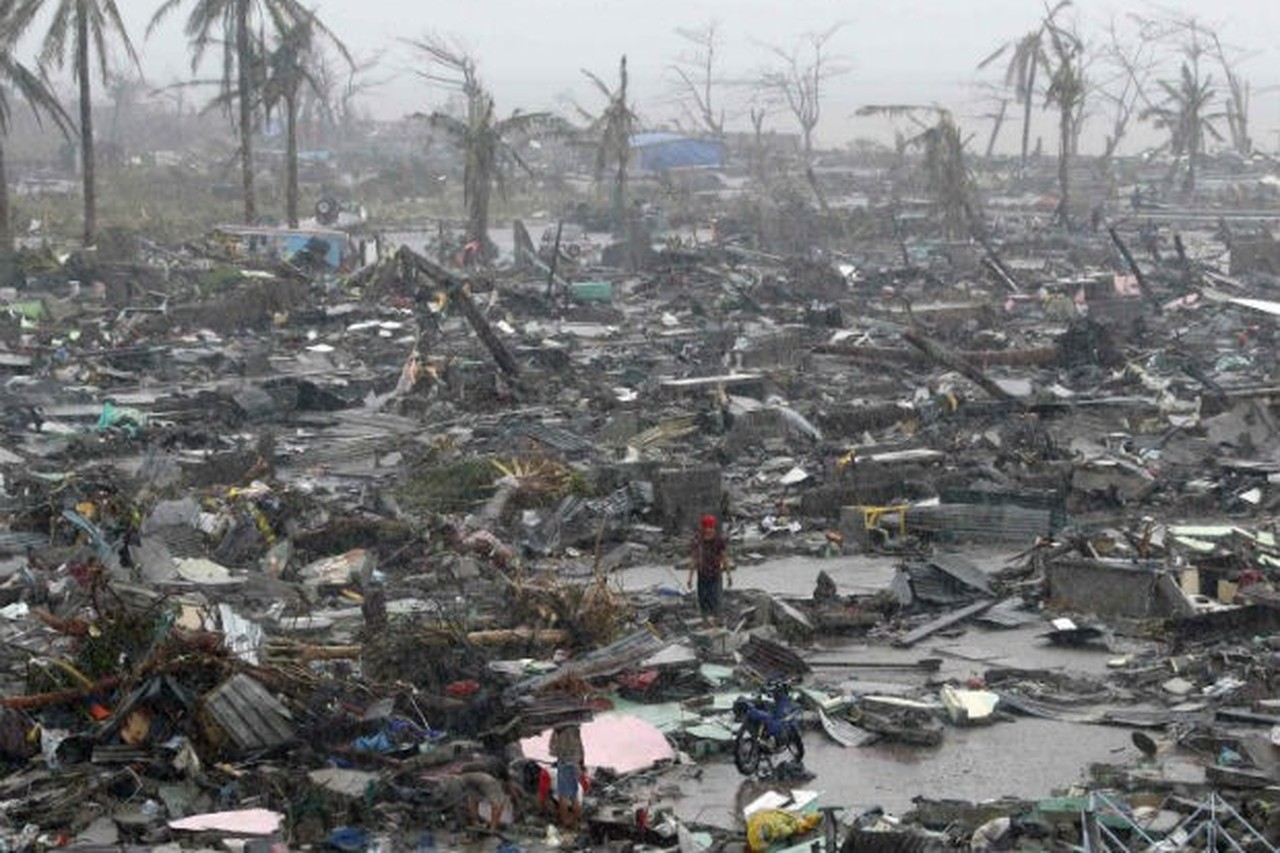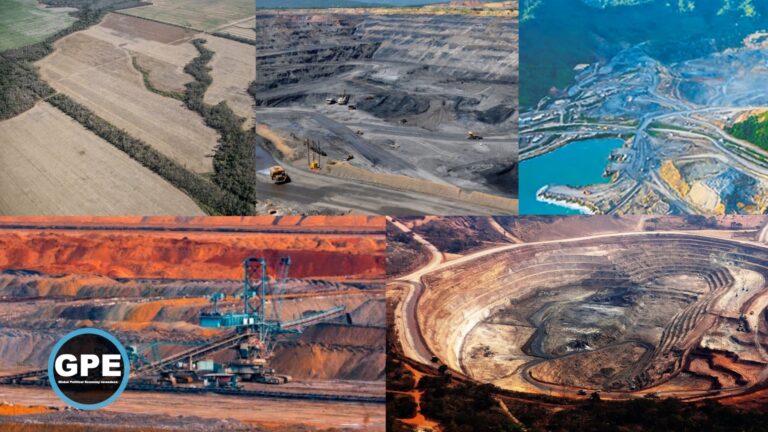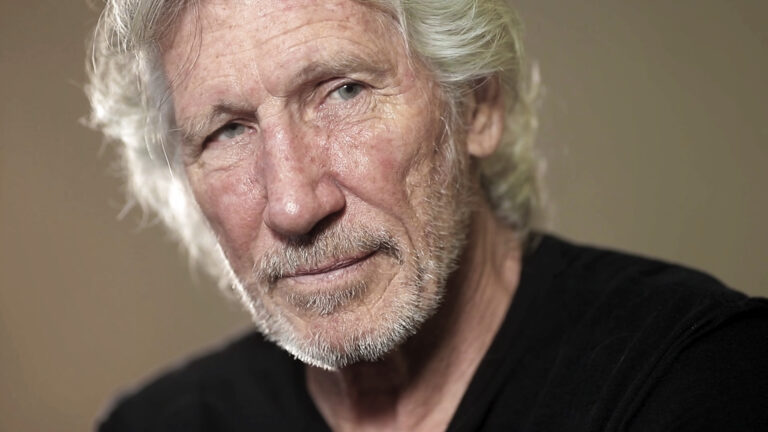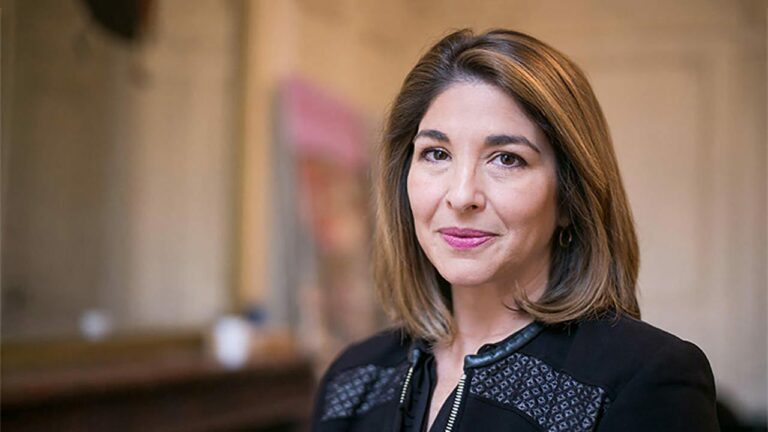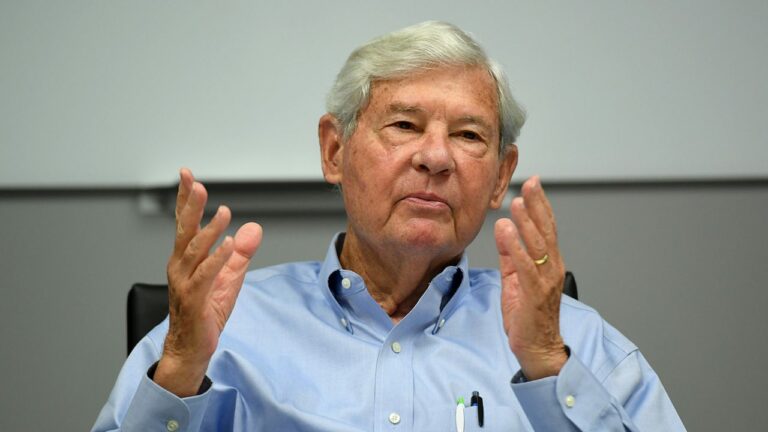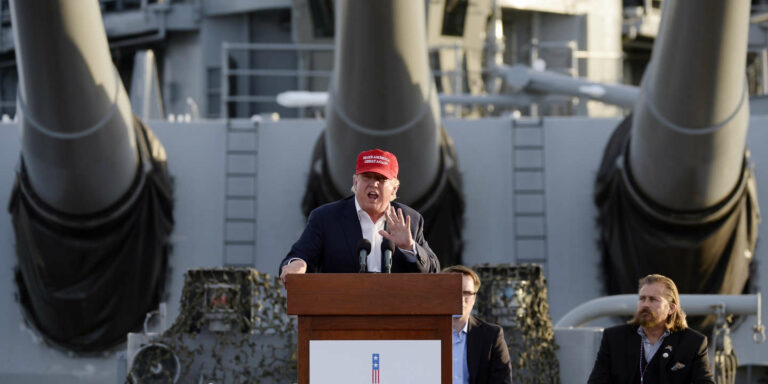Après Moi, le Déluge – Christopher Williams on Reality Asserts Itself (pt 5/5)
This interview was originally published on August 14, 2014. Mr. Williams says the global elites plan to protect themselves by adapting to the threat of continuing fossil fuel use while everyone else will suffer the consequences of climate change disasters.
PAUL JAY, SENIOR EDITOR, TRNN: Welcome to The Real News Network. I’m Paul Jay. This is Reality Asserts Itself. And this is the last segment, at least for this series of interviews, with Chris Williams, who now joins us in the studio.
Thanks for joining us again. Chris.
CHRISTOPHER WILLIAMS, ENVIRONMENTAL SCIENTIST, ACTIVIST, AND AUTHOR: Thank you.
JAY: So, one more time, Chris is a longtime environmental activist. He’s the author of Ecology and Socialism: Solutions to the Capitalist Ecological Crisis. He’s the chair of the Science Department at Packer Collegiate Institute, adjunct professor at Pace University.
Thanks for joining us.
So we’re going to pick up where we were. You probably should watch the other segments, ’cause we’re dealing with the climate change crisis and whether or not capitalism can provide any solutions to it. And I think Chris has more or less reached the conclusion that’s not very likely.
So let’s deal with that. So, first of all, assuming that we kind of do business as usual for the next 20 years or so, if we can probably look out that far, and if you look at, like, the elections that are coming in 2016, you can even look forward to 2020, and you start, you know, within the horizon of global politics right now, without some incredibly galvanizing event, which–you know, like they say, another Pearl Harbor, like an equivalent of that, unfortunately, that galvanizing event, if it’s a climate change event, is probably going to be something even more horrendous than a Pearl Harbor, because, I don’t know, some enormous piece of ice falls off either the north or south ice sheets, the event could be catastrophic, not just galvanizing. But let’s assume that isn’t going to happen in the next 20, 25 years and where more it’s just kind of incrementally getting worse and worse, and particularly more in the south than in the north. Places where there’s real political power in the world are not likely to be hit as badly. What kind of world do you think we’re living in by, I don’t know, ’25, 2030? It’s not that far off. These numbers of sound science fiction numbers, but they’re not anymore.
WILLIAMS: They’re not at all. And there are no real serious plans to do anything on the timeframe that we need to. We know we have around 15 years to be making serious, substantial reductions in emissions.
JAY: And it’s not going to happen.
WILLIAMS: Well, who knows? I mean, I think that that’s one of the great unknowables. I think if–.
JAY: Well, let’s say it doesn’t happen. Then what’s the world look like?
WILLIAMS: If it doesn’t happen, then we’re heading towards a world where we’ll already have a good idea of what it’s going to look like in terms of there are going to be situations of extended drought. We’re already seeing the whole of California is in drought right now. How many years can you continue to sustain that when we also know that they’re extracting groundwater at completely unsustainable rates? And so California is not a part of the United States that can continue doing that for very long, even without climate change, which we can see is already severely affecting things. How many times are you going to rebuild a city like New Orleans? Miami is completely threatened by climate change, from both sides, actually, and is a city living on borrowed time in many regards. How many more Typhoon Haiyan from last year can we think about coping with when they come not once every five years or once every ten years or once every hundred years, as it used to be, but perhaps every other year? How may times are you going to be able to cope with spending $50 billion to rebuild New York City without making much longer-term plans?
JAY: Well, they are making longer-term plans. They’re going to put buildings on stilts. They’re going to make everyone have parking lots as the first floor. It’s all about, well, we have the money, we can deal with it.
WILLIAMS: Right. I think, I mean, there is this shift towards, well, we’ll just adapt. Right? There was always these two sides of the story, mitigation or adaptation. And now it’s like, well, let’s just give up and let’s just try and adapt and live in a different world, a warming world.
JAY: And mostly, I think, for the elites, anyway, they realize it’s mostly the poor that are going to get screwed, and they’re getting screwed anyway, so what’s one more thing?
WILLIAMS: That’s one way, certainly one way of looking at it. The problem is that it’s going to affect them too, because–.
JAY: Well, I actually want to go the other way. For people who are poor, it seems abstract. Like, we’re in Baltimore, and there’s tremendous poverty in Baltimore. And Maryland has some of the biggest income gap in the country–I think actually is the biggest income gap in the country. I mean, we have more millionaires in Maryland and more poor people in one place. But when you’re fighting so hard just to make a living, to be able to eat and pay the rent, and you’re dealing with all the social consequences of poverty, including the high crime and violence rates and such, this whole climate thing seems abstract.
WILLIAMS: I think it can seem abstract in some ways, until you are paying more for food, you’re paying more for gasoline, you’re paying more for your heating, you have to have your air-conditioner on more, so you’ve got higher electricity bills. There’s ways in which climate is going to completely devastate people who are already living on the edge. I mean, we saw that in 2008 with the food crisis, where food increases in price by 30, 40, 50 percent or more, and if you’re already spending two-thirds or more of your income, as many people in the Global South do, on food, you can’t sustain that.
JAY: And agriculture is going to be one of the most affected things by climate change.
WILLIAMS: Absolutely. All of the reports indicate that yields will go down. There are some places where you’ll have to completely shift what crop you’re doing, you’re having or growing, as they’re doing in California right now, reconsidering that. The problem is that then capitalism intervenes and you don’t necessarily get the crop that you should be growing on that type of soil with that climate; you get the crop that will make the most money, which may draw more water out, which is absolutely happening in California.
So I think that there are ways in which, to your question, that climate is becoming more and more real, in the way in which it did during Hurricane Katrina and the social devastation and the racism that was so evident to every American as a result of that. So I think by 2030 all of those kind of events that I mentioned are going to be coming much more frequently and [be] much more severe. And if we’re still underfunding government because we won’t tax the rich, then the situation is going to get worse.
JAY: Even where we are in Baltimore, our building, the floodplain, the flood level that you had to be insured and take measures against, used to be two feet above the sidewalk. And they just redrew the map. It’s now eight feet above the sidewalk. So FEMA is clearly getting ready for this stuff.
WILLIAMS: Yup. And so are the insurance companies. So they’re taking out anything that might force them to pay out when bad things happen. And so the insurance companies, along with the Pentagon, are the entities that are taking climate change the most seriously and are already making plans to make sure that they can still access the oil that they want, in the case of the Pentagon, or are more resilient by actually becoming greener, if you can call the military green. And the insurance companies are changing their policies to make sure that–you know.
JAY: Well, one place I think there’s some vulnerability in the political system for change–’cause I think at the national level right now it’s hard to foresee anything significantly changing. But at city levels and state levels, certainly in some states, and maybe smaller ones, and like Maryland, you could see the possibility of some real change politically. If there was, for example, you actually could elect a government in a Baltimore, in a Maryland, where the government actually governed for the majority of the people, what does its climate change policy look like? What’s possible at a state and city level, given everything else that’s going on?
WILLIAMS: I think there are a lot of things that are possible, even at the state or the city level, in terms of things like how do you move money more towards public transit? How do you build more green spaces? How do you have more resilient infrastructure, in terms of where you bury the electricity cables, what you do with your sewage system and sanitation plants, where you’re allowed to build if you’re on the coastal system, which is where 100 million Americans live, within kind of three feet of sea level? Are you allowed to build on floodplains or not? So there are ways in which you can enhance the resilience of a city at the same time as making it a nicer place to live, by taking cars out, by having more green space, by offering public transport to more people. And so those things could be done. But they’re clearly not really being done on any kind of level at the scale which we need, even in New York, which was devastated by Sandy, ’cause again you have to take on–.
JAY: And Maryland, you would think, is vulnerable as well.
WILLIAMS: Absolutely. And it’s one of the reasons that the Pentagon is so concerned, because of the Navy, right? All of the Navy bases are obviously on the ocean. So what’s going to happen to them?
JAY: Annapolis.
WILLIAMS: Yep. So they’re talking about raising all those things.
So what are we doing where people actually live there? Why are we so concerned with whether the military operates, as opposed to whether cities operate and the people inside them? How do we protect them?
So, I mean, I’m fairly optimistic about the possibilities of social change, because we’ve seen in the past, I mean, most recently, obviously, in 2011, I think we’re living in a different period post-Arab Spring, including in this country with Occupy. There are lots of new questions that have been raised, things that didn’t work out, but it was the first mass global revolt. It’s still going on in Spain, in Greece, in Turkey, in Brazil, for three decades or more. And so I think we’re seeing the return of the idea that revolt, rebellion–dare I say it, revolution–is kind of something that people think, I’ve had enough of this, I know what capitalism is, I’m prepared to consider more radical alternatives, ’cause they’re not answering the questions that I have anymore about my life and I’m not pulling myself up by the bootstraps. In fact, I don’t have any boots left, let alone straps. So what am I going to do? Right? And I think the idea of socialism being a bad word is changing, even in the United States.
JAY: Yeah, the polling shows that.
WILLIAMS: Absolutely. And I think that that’s significant. And there’s a reason that most people don’t vote in the United States, ’cause why would you? Right? There’s two parties who say the same thing, more or less. So we need a real political alternative. And I’m hopeful that people are considering more radical alternatives in a much more serious way than was true prior to 2011, but also coming out of the financial crash of 2008, when–why did that slogan that we got sold out, the banks got bailed out, why did that become so resonant, not just with United States, but all around the world? ‘Cause, like, it was true, you know, and people are living in the same situation, even if it’s at different levels. And so I think there is a real case to be made, which people would be responsive to, that we should be massively increasing taxes on the rich, getting rid of fossil fuel subsidies, and pulling those billions of dollars, in excess of $750 billion globally, to produce more fossil fuels. They don’t need that money.
JAY: Subsidies.
WILLIAMS: Subsidies. Putting that to research and development and production of renewable alternatives, such as wind and solar, wind now being cost competitive. Solar has decreased by 99 percent costs since 1980 and is still going. So there are real alternatives, even within the system, for actual structural change.
We need to get the money off the rich and redistribute that to socially progressive causes. We need to get–I mean, talk about new taxes. It would be nice if U.S. corporations paid their taxes that they already should do. Two-thirds of U.S. corporations pay no taxes with all their scams. So let’s get them doing that for starters. That would immediately bolster the finances of government.
And we need some regulation, right? We need regulation to not just take the money from the fossil fuel corporations, their subsidies, and apply it elsewhere, but we need money and regulation to close down the coal industry, stop the expansion of fracking, and have a massive buildout not just of solar and wind plants, but also other things, like the new infrastructure that you would need surrounding that.
JAY: And some of that can be done at the state level.
WILLIAMS: Absolutely some of that can be done at the state level, and some states have done it a little bit more than others. I mean, amazingly, Texas has got enormous quantities of wind power that it ships to other states, even though it’s a conservative state.
JAY: Also the home of fracking.
WILLIAMS: And the home of fracking, yes. So there are lots of contradictions. But it’s not impossible to see us being able to fight for–build a movement that is strong enough to win some of those changes, ’cause I think we need to operate on two different levels. One is some genuine reforms, not the false solutions, the geo-engineering or the cap-and-trade stuff, but real solutions, such as regulation, taxation, holding the corporations accountable for their pollution. I think those are things we need to do, because we need to buy ourselves some time, quite clearly. We also need to get organized, ’cause we’re not very organized at the moment. And we need to have independent democratic– democratic in the real meaning of the term–politics and organization.
But I think we also need to keep in mind that we should have a bigger vision for change, that the be-all and end-all of life should be how much money you’re making and how many things you can buy, ’cause that’s what capitalism really forces us into, right? We measure our self-worth by the kind of things that we can buy and have bought, as opposed to–how do you measure human happiness? Through the relationships that we have with each other and with the earth that we depend on.
JAY: Right.
WILLIAMS: And live in a system that’s not based on competition and money, but is based on cooperation and real democracy, where you’re not continually building and building and growing and growing, but you have a complete reevaluation of what is in fact valuable.
JAY: Very good. Thanks very much for joining us.
WILLIAMS: Thank you.
JAY: And thank you for joining us on Reality Asserts Itself on The Real News Network.
“Chris Williams is a longtime environmental activist and author of Ecology and Socialism: Solutions to Capitalist Ecological Crisis. He is a professor of physics and chemistry at Pace University and chair of the science department at Packer Collegiate Institute, and a regular contributor to the International Socialist Review.”
